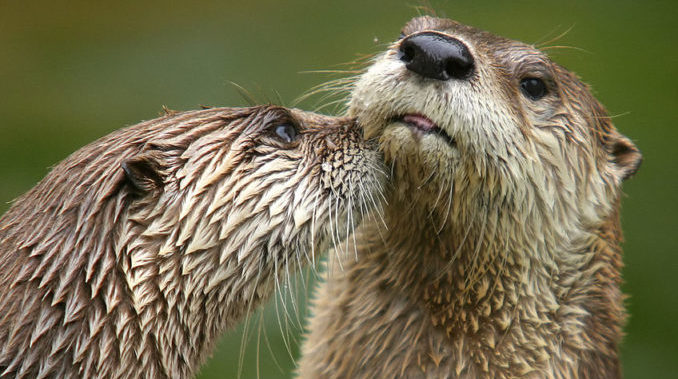
Without blubber, how do otters stay warm in the freezing Pacific waters? The journal Science says it’s all in their “leaky” muscles. This discovery could be a game changer in how we think about the evolution of all marine mammals. Sea otters are the smallest, most compact mammals of the ocean. Even with their fur, the densest on the entire planet, it cannot protect them from the rapidity in which the cold water sucks heat from their body. Water transfers heat 23 times more efficiently than air, so how are these furry little floating barrels not frozen solid?
Scientist already knew that sea otters rely on extreme metabolisms to maintain, on average, a 37 degree Celsius body temperature, eating 25 percent of their body weight in food everyday. But scientists still did not know the cellular origins that “Revved up their metabolism”. Traver Wright, a comparative physiologist at Texas A&M University in College Station and fellow scientists first looked for the heat source in their muscles. Skeletal muscle makes up 40 – 50 percent of most mammals’ body mass so it effects the whole bodies metabolism.
The team collected tissue from 21 captive and wild sea otters, ranging from babies to adults. Then, using a device called a respirometer, researchers measured otter muscle cells’ respiratory capacity in different states of oxygen flow compared with other animals — including humans, Iditarod sled dogs and elephant seals. The rate of oxygen flow offers an indirect measurement of cells’ heat production.
Leaks in mitochondria — the energy-generating part of cells — generate extra heat and cause sea otters’ extreme metabolism, the researchers found. Metabolism describes how food gets converted into energy in cells. Mitochondria pump protons across their inner membrane to store energy that can be used to power the cell. But if those protons leak back over the membrane before being used for work, that energy is lost as heat. Because these proton leaks increase the amount of energy lost as heat, otters need to eat more food to make up for that lost energy, revving up their metabolism.
It’s not yet clear if otters inherit this trait or develop it with exposure to cold water. “We don’t know if this is inherent,” Wright says, “or if this is something that quickly comes on after birth as a means of generating heat on demand.”
Finding the cellular source of sea otters’ souped-up metabolism could help scientists better understand how other marine mammals cope with frigid water. And it could lead to new insights into how the ancestors of these creatures first evolved to live and thrive in the seas.
